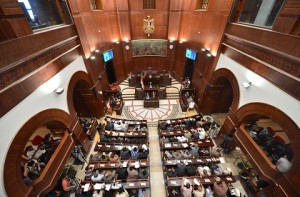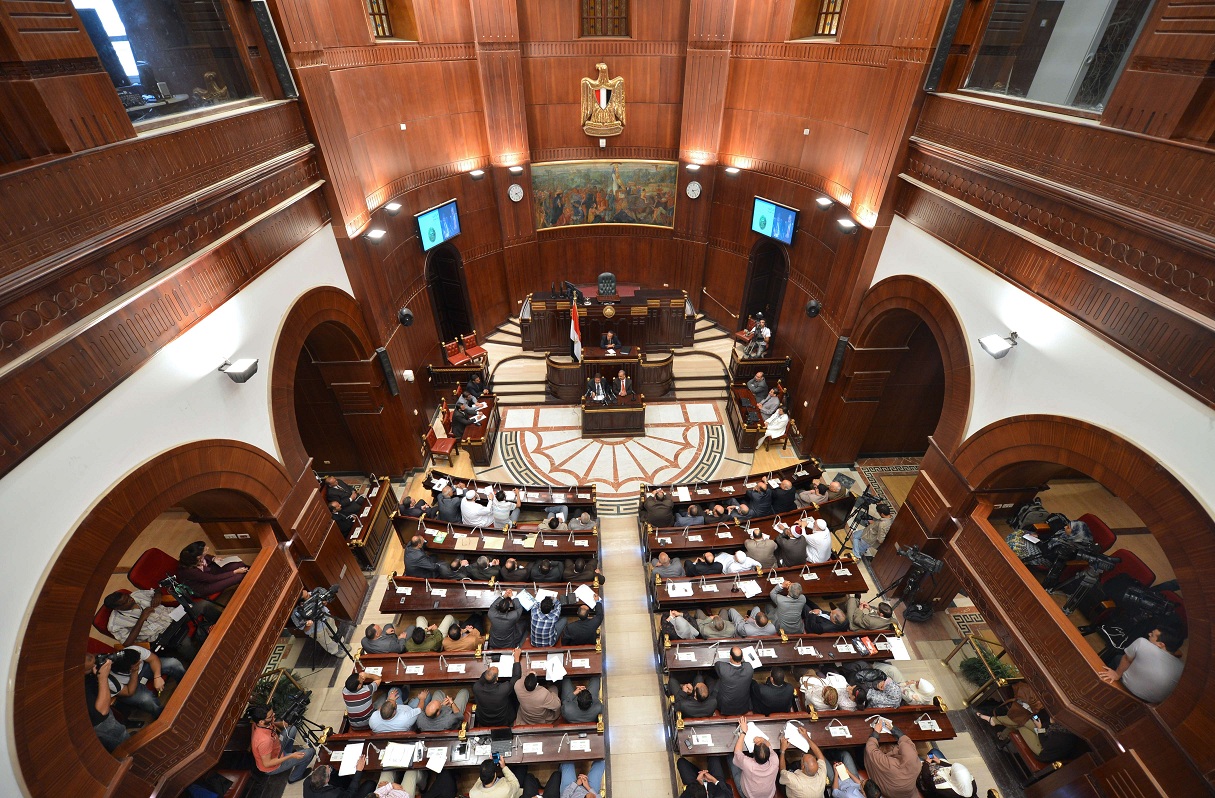
(File Photo)
(AFP Photo)
United Nations’ human rights experts called on the Shura Council to reject the draft law regulating civil society organisations, saying that it does not comply with international standards.
The experts stated that the draft law had a number of “serious shortcomings” that may be used to obstruct the work of civil society organisations advocating human rights.
“We don’t need international organisations to tell us how to deal with our reality,” said Mohamed Mohey El-Din, Shura Council member and vice-president of the Ghad Al-Thawra Party.
What mattered, he added, was the opinion of the Egyptian people that could be reflected in setting up dialogues between political parties and Egyptian non-governmental organisations. “We also welcome the advisory opinion of international experts,” he said.
The UN report expressed concern about specific provisions in the draft law; for example the law states that associations’ funds are considered public funds and associations will be banned from obtaining foreign funds without prior permission.
“It is highly regrettable that a government that was formed as a response to peaceful social activism can place such restrictions on people’s right to freedom of association,” said the UN Special Rapporteurs on freedom of peaceful assembly and of association, on human rights defenders, and on freedom of opinion and expression, according to an official report released by the Office of the United Nations High Commissioner for Human Rights.
The draft law also limits the activities of foreign civil society organisations, requiring them to be consistent with the needs of the Egyptian society and its development plans taking into account “the public order and morals”.
“These provisions, combined with the right for the administration and any interested individual to object to any decision taken by an association or to any of its activities, will compromise the role of independent civil society organisations, which is essential, particularly in times of political transition,” warned the special rapporteur on the rights to freedom of peaceful assembly and of association, Maina Kiai.
Kiai added that the draft will deter civil society from seeking funding by imposing heavy fines or even prison sentences on representatives of organizations that receive foreign funds without permission.
Special Rapporteur on Human Rights Defenders Margaret Sekaggya stressed the importance of freedom and independence for human rights defenders when they perform their roles: “The draft law gives excessive power to the authorities and this may well ultimately impede associations from fulfilling their crucial function in the promotion and protection of human rights.”
Frank La Rue, the special rapporteur on freedom of opinion and expression said that the draft law was vague and could be interpreted in a way that would lead to more restrictions on civil society.
The Shura Council had earlier agreed “in principle” on the draft law that was submitted by the Shura Council’s Human Development Committee.
The experts regretted that recommendations by several civil society activists were not considered in the drafting of the law.
They welcomed the Egyptian government’s adoption of a resolution on human rights defenders that the UN Human Rights Council passed on 21 March. “We now urge the authorities to comply with their own engagements at the international level,” the experts said.


